After a four-and-a-half-hour public hearing packed with technical detail, emotional testimony, and careful deliberation, the Churchill County Commission voted to uphold the Planning Commission's approval of a special use permit (SUP) for NNV Investments, LLC, a subsidiary of Redwood Materials. The permit allows for outdoor lithium-ion battery storage and testing on a 438-acre site off Bango Road, along with new conditions designed to address safety, water, and public trust.
The April 16 meeting addressed three appeals filed by Churchill County residents concerned about the site's proximity to homes, agricultural water sources, and the county's growing identity as a critical part of Nevada's lithium loop.
Appellants Honey Gibbons, Carolyn Kendrick-Heaverne, and Bernadette Francke raised concerns about fire risks, a high-pressure gas line, emissions from the neighboring Safety-Kleen facility, and water contamination in the event of a fire.
Several speakers cited fires at lithium facilities across the country, including Moss Landing in California and a recent incident in Missouri. Others questioned whether the Fallon/Churchill volunteer fire department could handle an event of similar scale.
"This is stupid," said Gibbons in her testimony. "They have other places to go."
Commissioner Matt Hyde led the charge for stronger safeguards, saying: "We're a gold standard community, and we should hold companies to a gold standard."
He and Commissioner Eric Blakey zeroed in on the facility's potential to overburden local services and trigger environmental harm—two of the five findings required for a SUP to be valid. Their primary concerns included water availability for firefighting, ongoing soil and groundwater testing, and stricter fire code adherence.
Ultimately, the board added five new conditions, including:
Baseline and annual soil and groundwater testing
Required compliance with both current and forthcoming fire code amendments
Written confirmation from the owner of the gas line easement that the facility poses no risk
Formal input rights for TCID and BOR in design planning
A clause for SUP revocation if test results exceed federal/state contaminant thresholds
Much public concern centered around the danger of thermal runaway fires in stored batteries—especially during Nevada's hot summers. A key point of confusion emerged over temperature thresholds. Several residents cited a recommended maximum storage temperature of 80 degrees, assuming it referred to Fahrenheit. In reality, 80°C equals 176°F, a distinction clarified by company representatives during the hearing.
NNV Investments officials testified that their internal monitoring shows thermal events are unlikely below 175°F and that the facility would be equipped with 24/7 FLIR (forward-looking infrared) cameras, on-site response teams, and specialized containment measures to prevent and isolate overheating batteries.
Company representatives emphasized that safety is central to their business model. "Fires are something we don't want at all costs," said Don Tatro of Redwood Materials. "We are continuously upgrading our response and storage protocols."
They also noted the company's participation in state-level fire code advisory groups and partnerships with agencies like DOT, OSHA, and the Nevada Division of Environmental Protection.
Tatro said the company already exceeds many national standards, citing their partnership with Stanford University to validate emissions, water use, and environmental impact independently. According to the company, lithium recovered through recycling reduces emissions by up to 80% compared to newly mined material.
Bruce Breslow, representing Churchill Fallon Economic Development, framed the appeal in broader terms: "If we try to apply standards to them that don't exist, OSHA doesn't have the standards yet, EPA doesn't have new standards yet, if they did, you can apply them here. If you want them to have a water source, put it in a condition and have a water source. I would be very careful of what you're saying to this company and all the other companies that we've been working so hard to try to get to come to this area."
Churchill County is one of several counties that are members of the Lithium Loop Tech Hub, which was designated by the Economic Development Administration last summer and led by the University of Nevada. The Tech Hub received $21 million and is a regional effort to make Nevada a global hub for lithium battery processing and reuse.
However, several local residents pushed back on that vision, arguing that location, not mission, is the issue. As one longtime resident, Bryan Anderson put it, "We support the work. We just don't want it stored next to our canal, our farms, and our grandkids."
NNV Investments has committed to beginning operations under the new conditions, and any expansion or operational changes will require further county review.



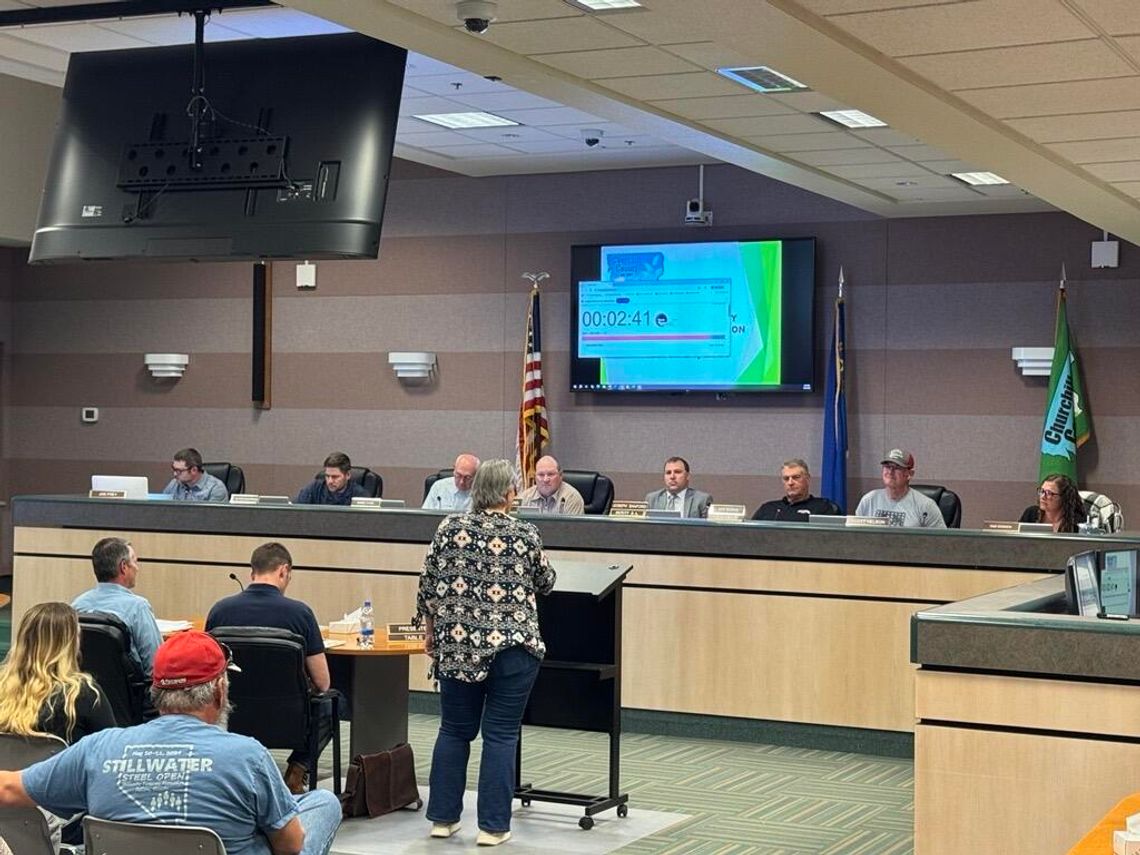






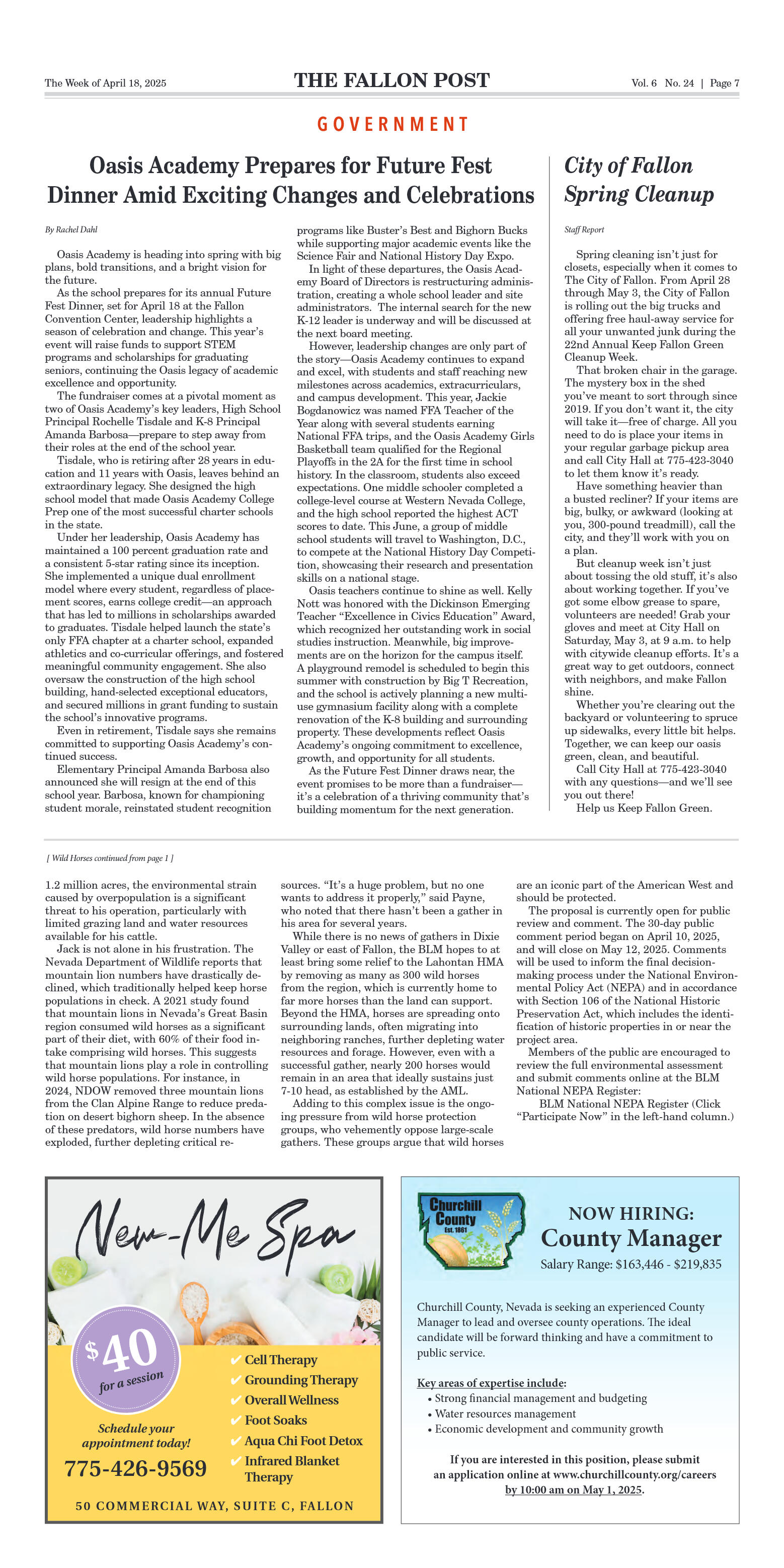

























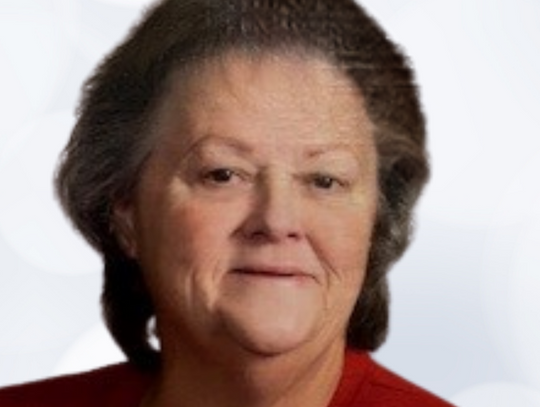
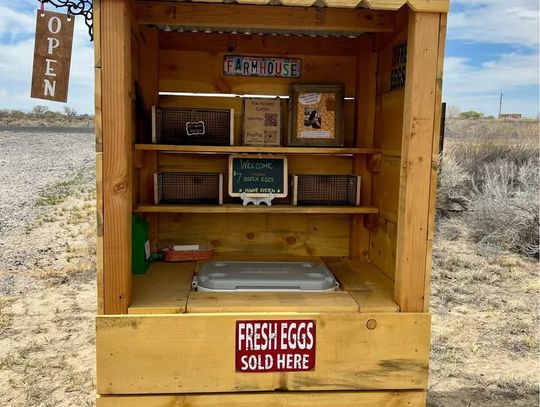
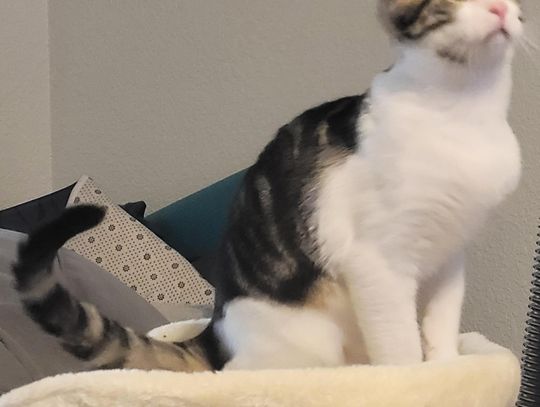



Comment
Comments